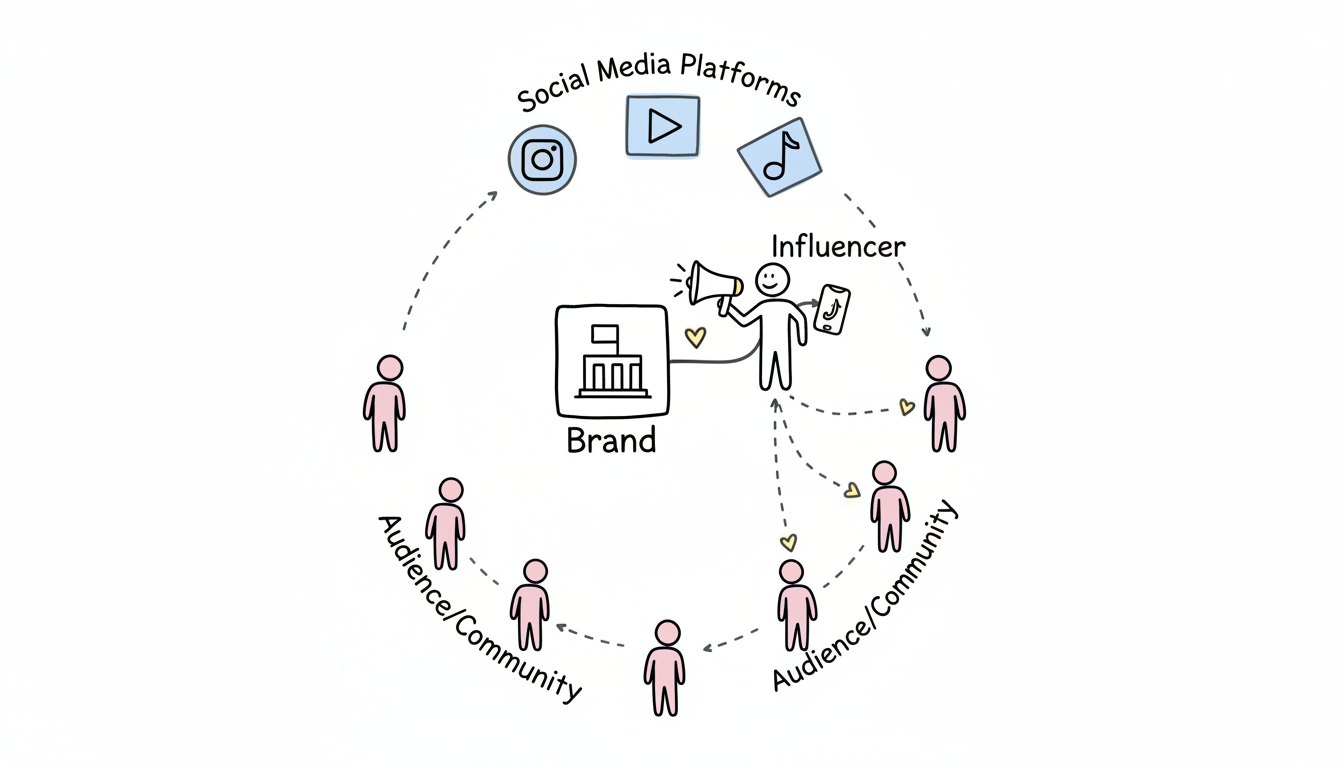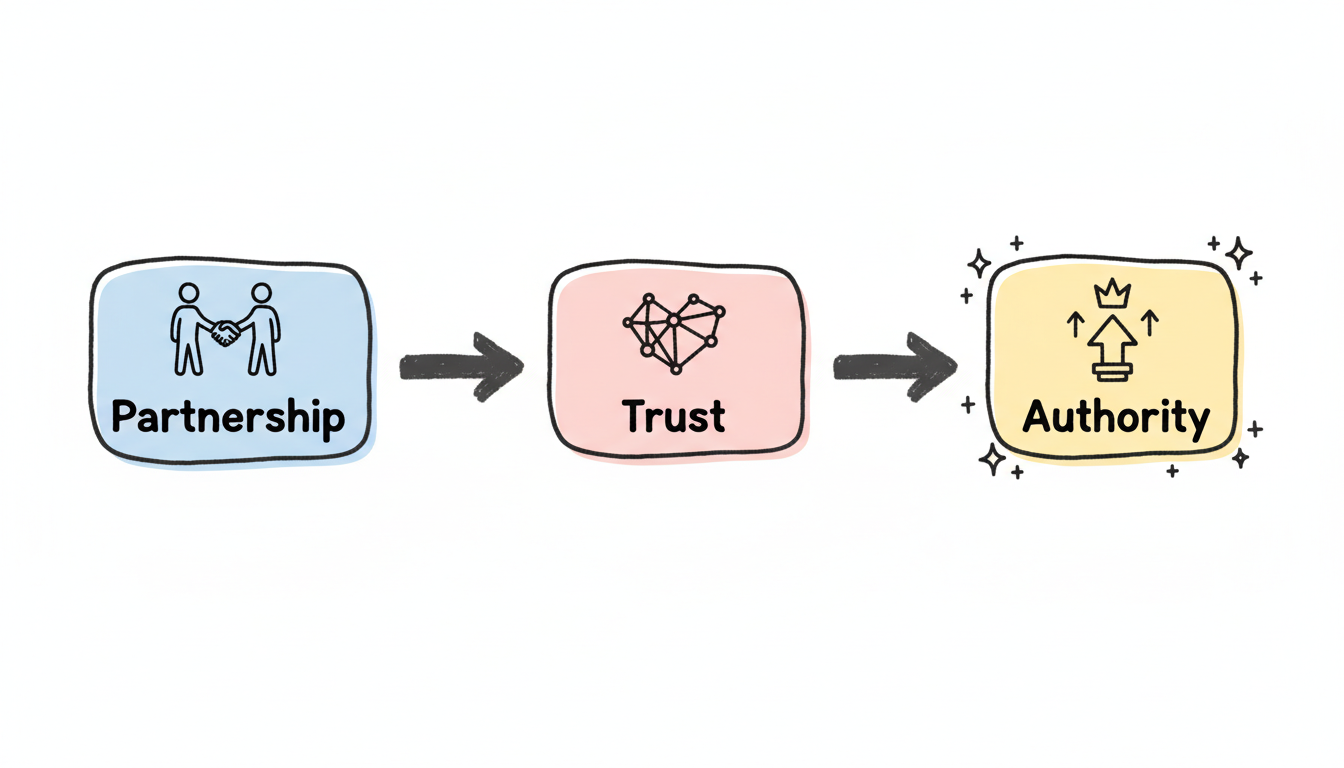In today's digital age, where social media platforms have become a hub for marketing and brand promotion, influencer marketing has emerged as a powerful tool for businesses to build their brand authority. Understanding the dynamics of influencer marketing and its intersection with social media is crucial for leveraging its potential. This article explores the rise of influencer marketing, defines its essence, discusses the role of social media, strategies for brand building, measuring success, and future trends.
In recent years, influencer marketing has experienced an exponential rise in popularity. This marketing strategy involves collaborating with individuals who have a significant following on social media platforms. These influencers, through their credibility and authenticity, have the power to sway the opinions and purchase decisions of their followers. By establishing a strong partnership with influencers, brands can enhance their reach, engagement, and ultimately, their brand authority.
Influencer marketing gained traction with the rise of social media platforms like Instagram, YouTube, and TikTok. These platforms provided a space for influencers to showcase their talents, lifestyles, and opinions to a vast audience. As influencers started to gain massive followings and credibility, brands recognized the potential to tap into their network and amplify their brand message. This marked the beginning of influencer marketing as a creative and impactful marketing strategy.
The rise of influencer marketing can be attributed to several factors. Firstly, social media platforms have revolutionized the way people connect and interact with each other. With millions of users actively engaging on these platforms, influencers emerged as key players in shaping trends and influencing consumer behavior. Their ability to create authentic and relatable content resonated with their followers, leading to a strong sense of trust and loyalty.
Secondly, traditional forms of advertising have become less effective in capturing the attention of consumers. With the rise of ad-blocking software and the decline of traditional media consumption, brands needed a new approach to reach their target audience. Influencer marketing offered a solution by providing a more organic and personalized way of promoting products and services.
Moreover, influencers themselves have become entrepreneurs and content creators, building their own personal brands. They have honed their skills in content creation, storytelling, and community management, making them highly sought-after partners for brands. Influencers bring a unique perspective and creative flair to brand collaborations, allowing for more engaging and memorable marketing campaigns.
Influencer marketing can be defined as a collaborative effort between brands and influential individuals to promote products, services, or brand messages to their respective audiences. Unlike traditional forms of marketing, influencer marketing relies on the trust and relationship that influencers have built with their followers. By leveraging the influence and reach of these individuals, brands can effectively target and engage with their desired audience, establishing brand authority in the process.
There are various types of influencers, each with their own niche and target audience. Macro-influencers, with hundreds of thousands or even millions of followers, have a broad reach and can appeal to a wide range of consumers. Micro-influencers, on the other hand, have a smaller but highly engaged following within a specific niche. These micro-influencers often have a more personal connection with their audience, making their recommendations and endorsements more impactful.
When implementing an influencer marketing campaign, brands must carefully select influencers whose values align with their own. Authenticity is key in influencer marketing, as followers can easily detect inauthentic endorsements. By partnering with influencers who genuinely believe in the brand and its products, brands can ensure that their message is conveyed in a genuine and compelling manner.
In conclusion, influencer marketing has become a powerful tool for brands to connect with their target audience in an authentic and engaging way. The rise of social media platforms and the influence of influential individuals have paved the way for this marketing strategy to flourish. By understanding the dynamics of influencer marketing and leveraging the power of influencers, brands can enhance their brand authority and effectively reach their desired audience.

One of the key aspects of influencer marketing is its synergy with social media platforms. Social media's power to connect, engage, and influence users plays a vital role in the success of influencer marketing campaigns.
In today's digital age, social media has become an integral part of our daily lives. We spend hours scrolling through our feeds, liking and commenting on posts, and following our favorite influencers. These platforms have transformed the way we consume content and make purchasing decisions.
But what exactly is influencer marketing? It is a form of marketing where brands collaborate with individuals who have a significant following on social media. These influencers, with their authentic and relatable content, have the power to sway the opinions and behaviors of their followers.
Social media platforms provide influencers with a direct line of communication to their followers. The ability to share personal experiences, provide recommendations, and create authentic content enables influencers to build a strong rapport with their audience. This deep connection encourages followers to trust and value the opinions and endorsements made by influencers. By harnessing this power, brands can leverage the social media platforms to increase their brand awareness and authority.
Imagine scrolling through your Instagram feed and stumbling upon a post by your favorite fashion influencer. She is showcasing a new clothing brand and raving about its quality and style. As a loyal follower, you trust her judgment and are more likely to consider purchasing from that brand. This is the power of influencer marketing on social media.
Moreover, social media platforms offer various features that enhance the effectiveness of influencer marketing. From Instagram stories to live videos, influencers can engage with their audience in real-time, creating a sense of authenticity and immediacy. This dynamic interaction fosters a deeper connection between the influencer and their followers, making the marketing message more impactful.
With numerous social media platforms available, it is crucial for brands to choose the right one for their influencer marketing campaign. Each platform offers a unique demographic and user base, and understanding the target audience is essential. For example, if a brand's target audience consists of young adults, platforms like Instagram and TikTok might be more effective due to their popularity among this demographic. By selecting the most suitable platform, brands can ensure maximum impact and engagement from their influencer marketing efforts.
It's important to note that different platforms also offer different content formats. Instagram, for instance, is known for its visually appealing photos and videos, while Twitter focuses on short and concise messages. Brands must align their content strategy with the platform's strengths to effectively convey their message.
Additionally, social media platforms are constantly evolving, introducing new features and algorithms. Staying up-to-date with these changes is crucial for brands and influencers alike. By understanding the latest trends and utilizing the platform's features strategically, brands can stay ahead of the competition and maximize the potential of their influencer marketing campaigns.
When executing influencer marketing campaigns, brands should recognize the role of influencers in building their brand authority and credibility.
In today's digital landscape, where consumers are constantly bombarded with advertisements and promotional content, building brand authority has become more important than ever. Consumers are no longer solely influenced by traditional advertising methods; they seek authenticity and trustworthiness in the brands they choose to engage with. This is where influencer marketing comes into play.
The Role of Influencers in Brand Building
Influencers serve as brand advocates who can communicate a brand's message in a compelling and authentic manner. Their unique voice and personal experiences resonate with their audience, leading to increased trust and loyalty towards the brand. Unlike traditional advertising, influencer marketing allows brands to tap into the power of storytelling and connect with consumers on a deeper level.
By collaborating with influencers who align with their brand values, businesses can leverage their expertise and credibility to position themselves as authoritative figures in their industry. When an influencer endorses a brand, their audience perceives it as a genuine recommendation rather than a paid advertisement. This not only helps in building brand awareness but also establishes the brand as a trusted source of information and guidance.
Strategies for Effective Influencer Marketing
To ensure successful influencer marketing campaigns, brands should implement effective strategies that align with their goals and target audience. Understanding the brand's messaging and aligning it with the influencer's content is crucial.
One strategy that brands can employ is to conduct thorough research and identify influencers whose values and interests align with their brand. This ensures that the partnership between the brand and the influencer feels authentic and resonates with the influencer's audience. For example, a fitness brand collaborating with a fitness influencer who shares workout routines, healthy recipes, and wellness tips can effectively reach and engage their target audience.
Additionally, fostering authentic partnerships is key to the success of influencer marketing campaigns. Brands should provide influencers with creative freedom, allowing them to create content that feels organic and genuine. This not only allows influencers to showcase their creativity but also ensures that the brand's message is delivered in a way that resonates with their audience.
Tracking key metrics is another essential aspect of influencer marketing. Brands should closely monitor the performance of their campaigns, analyzing engagement rates, reach, and conversions. This data provides valuable insights into the effectiveness of the influencer partnership and helps brands optimize their future campaigns.
In conclusion, influencer marketing is a powerful tool for building brand authority and credibility. By collaborating with influencers who align with their brand values and implementing effective strategies, brands can position themselves as authoritative figures in their industry. The key lies in fostering authentic partnerships, providing creative freedom to influencers, and tracking key metrics to maximize the impact and success of influencer marketing efforts.

As with any marketing strategy, measuring the success of influencer marketing campaigns is vital to gauge its impact on brand authority.
Brands should identify key performance indicators (KPIs) to measure the success of influencer marketing campaigns. These KPIs might include engagement rates, reach, follower growth, conversion rates, and sentiment analysis. By closely monitoring these metrics, brands can gain insights into the effectiveness of their influencer partnerships and make informed decisions for future campaigns.
Influencer marketing plays a significant role in establishing and enhancing brand authority. By partnering with influencers, brands can tap into their established trust and credibility, amplifying their brand message and reaching a wider audience. As influencers endorse and promote a brand, their followers perceive it as trustworthy, leading to increased brand authority in the eyes of the consumers.
The landscape of influencer marketing continues to evolve, and staying ahead of future trends is crucial for brands looking to maintain their brand authority.
Influencer marketing is continually evolving, and brands must adapt to changing trends. For instance, the emergence of nano influencers, who have smaller but highly engaged audiences, presents new opportunities for targeted and niche marketing. Additionally, the industry is witnessing a shift towards long-term partnerships and influencer-created content, emphasizing authenticity and meaningful relationships.
As social media platforms continue to innovate, influencer marketing is expected to evolve alongside them. The integration of advanced analytics, augmented reality, and influencer-driven product development are trends that are likely to shape the future of influencer marketing. By staying informed and embracing these changes, brands can leverage influencer marketing to maintain and elevate their brand authority on social media platforms.
In conclusion, influencer marketing is an art that requires a deep understanding of the dynamics between influencers, social media platforms, and brand authority. By strategically partnering with influential individuals, brands can unlock the potential of influencer marketing and build their brand authority on social media. With the right strategies, measurement techniques, and adaptability to emerging trends, brands can position themselves as authoritative figures in their industry, enhancing their reach, engagement, and overall success.
By submitting this form, you agree to our Privacy Policy and Terms & Conditions.